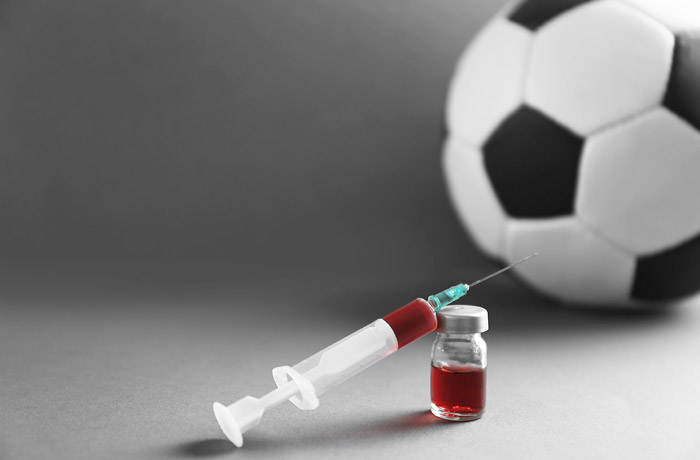Doping in Football (Soccer)
605 views, 06.05.2024
Doping in football (soccer) involves the use of prohibited substances or methods that enhance performance, reduce fatigue, or accelerate recovery. Despite football not being as notorious for doping as sports like cycling or track and field, there have been instances where players have been found using performance-enhancing drugs. Here are some types of doping that have been identified in football:
Stimulants
Stimulants such as amphetamines and cocaine can temporarily enhance alertness, aggressiveness, and physical ability, which might be particularly useful in a high-energy sport like football. These substances are banned because they can give players an unfair advantage by reducing fatigue and increasing concentration during games.
Anabolic Steroids
Steroids such as nandrolone and testosterone are used to increase muscle mass and strength, as well as to aid recovery from intense physical activity. They can help players perform at higher levels for longer, particularly during the latter stages of matches or throughout a congested fixture schedule.
Painkillers
While not enhancing performance directly, the abuse of painkillers allows players to compete when they would otherwise be sidelined by injuries. This can be considered a form of doping when used to mask pain excessively, enabling a player to perform without regard to their body’s natural warning signals.
Beta-2 Agonists
Commonly used for asthma, beta-2 agonists can increase aerobic capacity, reduce fatigue, and improve oxygen intake. Although legal when prescribed for asthma, their potential for abuse in enhancing endurance makes their use strictly regulated.
Blood Doping
While less common in football, techniques like EPO (erythropoietin) use or blood transfusions that increase the body’s capacity to transport oxygen can be beneficial for enhancing stamina and endurance.
Hormone and Metabolic Modulators
These substances, such as meldonium, affect hormonal balance and can improve energy metabolism and stamina. Meldonium, for instance, was brought to widespread attention by the case of tennis player Maria Sharapova but is relevant to endurance aspects in football as well.
Diuretics and Masking Agents
Diuretics are used to quickly lose weight, which can be beneficial for players needing to meet certain weight criteria or to accelerate recovery from injuries by reducing swelling. They can also be used to mask the presence of other banned substances by flushing these out of the body faster.
Detection and Prevention
To combat doping, football governing bodies like FIFA and national leagues implement rigorous anti-doping measures, including random drug testing both in competition and out of competition. FIFA also adheres to the World Anti-Doping Agency (WADA) Code, which outlines the substances and methods banned from sports.
Doping in football threatens the integrity and spirit of the sport. Although not as prevalent as in some other sports, the pressure to perform and the physical demands of the game can tempt players to seek illegal ways to enhance performance, necessitate vigilance and strict enforcement of anti-doping regulations to maintain fair play.





